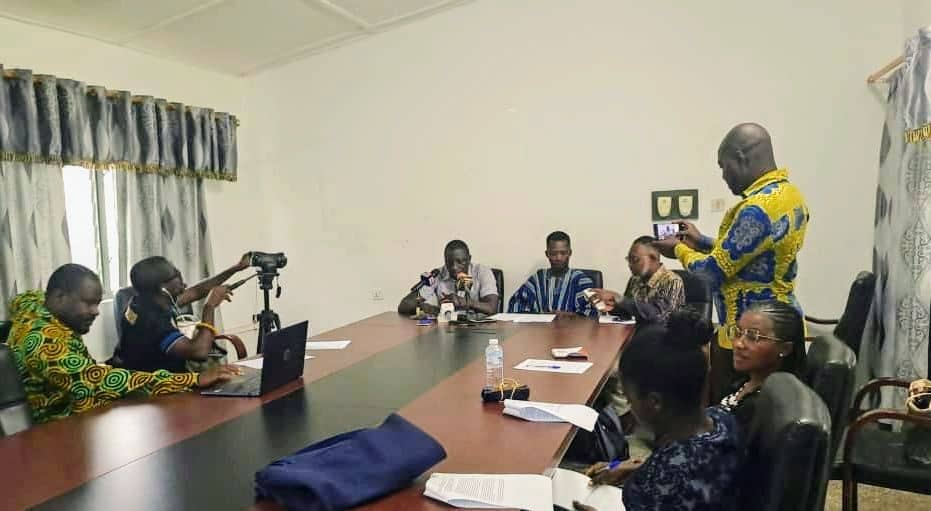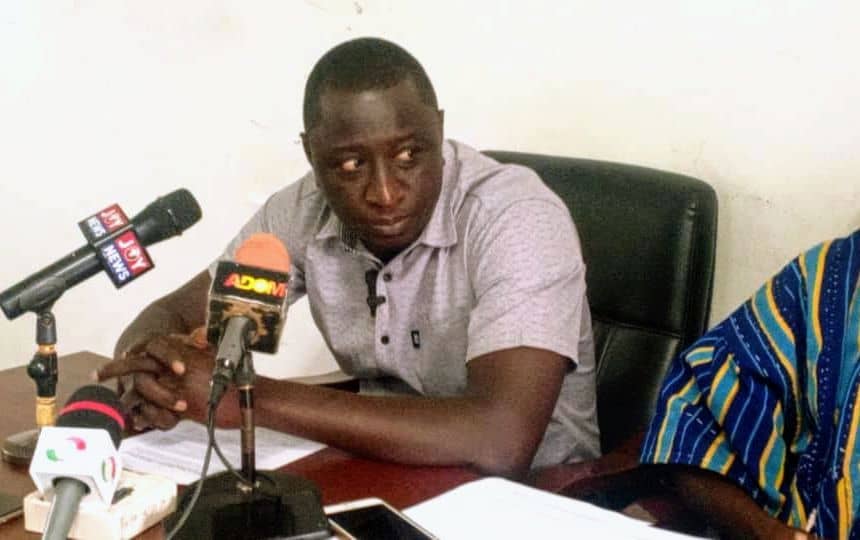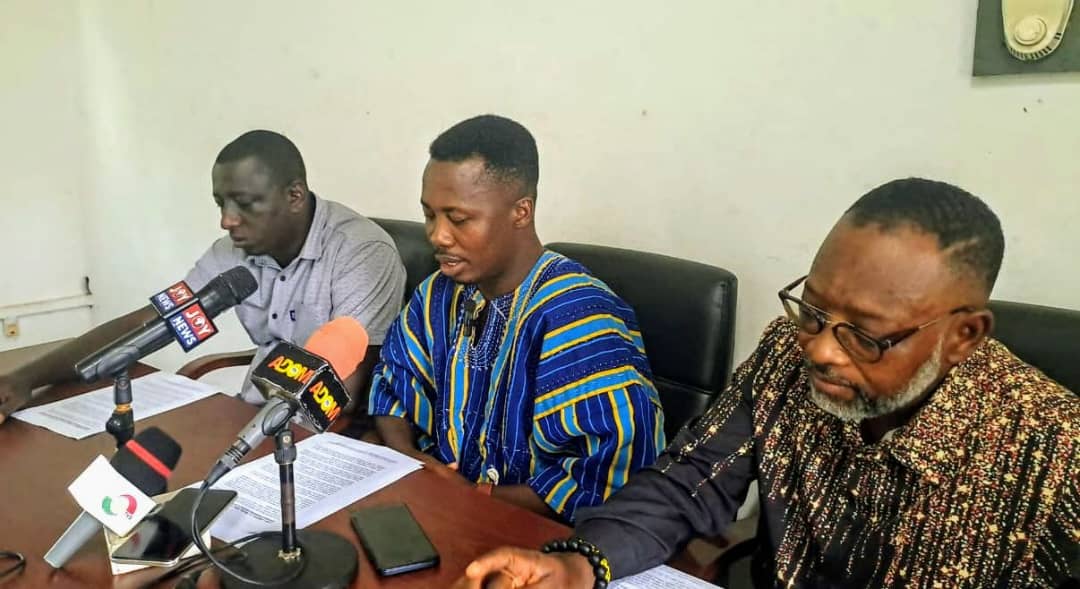The Journalists for Responsible Fisheries and Environment (JRFE) have shared worries on the activities of deep-sea mining (DSM).
JRFE in respect to its uprise on DSM, has called on African governments to add their voice to the call on the ban, moratorium or precautionary pause on deep-sea mining as global leaders meet at the International Seabed Authority currently ongoing in Kingston, Jamaica.
According to JRFE, deep-sea floor is recognized as both a shared heritage of humanity and a site of profound cultural significance, beyond serving as a habitat for rare and slow-growing species for millions of years.
The journalist-led blue economy organization hinted this at a press engagement on Thursday, July 24, 2025, in Cape Coast-Ghana.

Addressing the media at the presser, Mr. Charles Smith, a Development Communications Specialist, Co-Founder and Partnerships Manager at JRFE cited that article 136 of the United Nations Convention on the Law of the Sea (UNCLOS) describes the ocean floor beyond national jurisdictions as the “Common Heritage of Mankind.”
However, the 1970 Declaration of Principles Governing the Seabed and Ocean Floor Beyond the Limits of National Jurisdiction (UNGA Resolution 2749) highlights that exploration and exploitation must be conducted for the benefit of all countries, with special consideration for developing nations.
Citing the 2020 ISA commissioned study on the assessment of the potential impact of the exploitation of mineral-rich deposits from the international deep seabed area on the economies of countries already engaged in terrestrial mining, he indicated that eight out of the 13 countries largely affected are in Africa, including the Democratic Republic of the Congo, Eritrea, Gabon, Mauritania, Namibia, Zambia and Zimbabwe.
Mr. Smith observed that concerns over unregulated DSM have led thirty-seven countries, along with scientists and environmental organizations, to call for a moratorium or precautionary pause until its risks are fully understood, but unfortunately, none of the 37 countries is from Africa.
He emphasized that deep-sea mining poses significant threats to abyssal marine ecosystems and carries potentially irreversible damage to fragile habitats and rare species, some of which may take millions of years to recover just as they took millions of years to come into existence.
Adding that "as critical economic pillars for many African coastal nations, fisheries and coastal livelihoods already face significant vulnerabilities and their stability is essential for long-term prosperity."
"Deep-sea mining presents serious risks to fish stocks by altering ocean currents, disrupting seafloor ecosystems and potentially depleting oxygen levels," the Development Communications Specialist noted.

Meanwhile, he bemoaned that after 10 years of negotiations, the International Seabed Authority (ISA) is yet to agree to a regulatory framework and progress towards acquiring more scientific knowledge about the deep ocean, while scientists frequently stress to be not enough scientific data on deep sea.
ISA has through a release deduced that the common saying that the world know more about space than it do about the deep seabed remains true to this day, as only 1% of the deep ocean is explored.
The ISA release underscores that many deep-sea ecosystems remain poorly understood and even recent studies which bring new information to light have their findings disputed.
The African Union’s Blue Economy strategy emphasizes sustainable use of ocean resources for economic growth, improved livelihoods, and ecosystem health. However, deep-sea mining raises critical issues that require redress to align with these objectives.
Meanwhile, the African Union has no clear legal framework for regulating DSM within national jurisdictions with African states having little representation in international decision-making.
JRFE has further reiterated the risk of resource exploitation by foreign companies, limiting benefits for African nations while increasing environmental risks.
To prevent another resource curse from occurring, JRFE has added its voice to the call for a moratorium or precautionary pause on deep-sea mining and has urge the African Union (AU) and States to do same in order to safeguard the common heritage of mankind and overcome extractive injustice.
Sompaonline.com//Eric Annan

